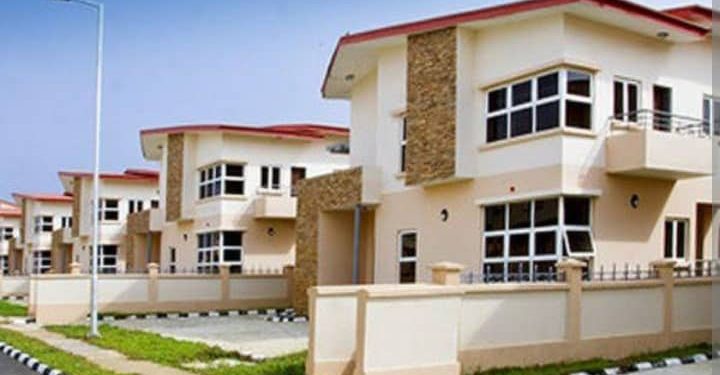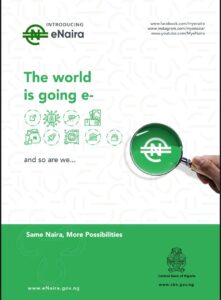By Victor Akaa
The provision of adequate housing is a cornerstone of societal development, and its importance cannot be overstated. Collaboration between the public, private, and corporate sectors is crucial to advancing the housing sector, enhancing citizens’ quality of life, and promoting national growth. Nigeria’s real estate industry has experienced remarkable growth, driven by increasing demand for housing and commercial spaces. However, beneath this booming market lies a disturbing trend: estate developers defrauding unsuspecting Nigerians of their hard-earned money.
Fraudulent estate developers employ various tactics to swindle their victims. They misrepresent projects as completed or nearing completion when, in reality, construction has barely begun or not started at all. Some sell plots or units in non-existent estates using fake documents and convincing marketing materials. Others collect payments from buyers for delayed or abandoned projects, leaving investors stranded, and inflate prices to make properties unaffordable.
This unfortunate practice is a common trend in the country, especially in Lagos, where some Lagos-based estate developers have been known to deceive unsuspecting buyers through a so-called ‘Buy Back’ arrangement. This scam involves providing readymade accommodation with the promise that if the developer fails to meet agreed-upon terms within a specified timeframe, they will repurchase the property. Meanwhile, these unscrupulous developers often relocate their families to the UK, boasting of their supposed untouchability due to alleged connections with influential politicians.
The impact of these fraudulent activities is far-reaching and devastating. Victims lose life savings, inheritance, or loans, plunging them into financial distress that can lead to emotional trauma, stress, disappointment, mental health challenges, strained relationships, and loss of trust. The country’s economic prosperity also suffers. Estimates suggest that over 50% of real estate transactions in Nigeria involve some form of fraud, with the government recovering billions of naira from fraudulent activities in recent years.
Several factors contribute to this pervasive issue. The lack of regulation creates inadequate oversight and enforcement, enabling fraudulent developers to operate with impunity. Nigeria’s economic instability provides opportunities for unscrupulous developers to exploit desperate investors. Additionally, buyers often lack knowledge of the real estate market, making them vulnerable to false promises.
To address these fraudulent activities, it is essential to strengthen regulatory bodies by empowering agencies like the Federal Ministry of Works and Housing to monitor and enforce regulations. The Economic and Financial Crimes Commission (EFCC) should also beam its shining light on the fraudulent activities of the estate developers. The government should also encourage transparency and mandate developers to provide detailed project information, including timelines, budgets, and completion guarantees. This will help authorities track fraudulent activities.
Creating awareness and promoting financial literacy through public campaigns, media engagement, and workshops is also crucial. Collaboration with law enforcement is necessary to ensure swift apprehension and prosecution of fraudulent developers, serving as a deterrent. Establishing dispute resolution centres to mediate and resolve disputes between developers and buyers will also help.
The scourge of estate developers’ fraud in Nigeria demands urgent attention. Regulatory bodies, law enforcement, and the public must work in tandem to prevent these crimes and protect innocent Nigerians. By promoting transparency, education, and accountability, we can restore trust in the real estate industry.
To protect themselves, prospective buyers should conduct thorough research to verify developers’ credentials and project legitimacy. Seeking professional advice from lawyers, architects, and financial experts is also advisable. Buyers should insist on written agreements, project plans, and completion guarantees and be cautious of unusually low prices. Reporting suspicious activities to regulatory bodies or law enforcement will ensure a safer and more secure real estate market in Nigeria.
Under Section 43 of the 1999 Constitution of the Federal Republic of Nigeria, which guarantees every citizen’s right to acquire and own immovable property anywhere in Nigeria, buyers must exercise diligence. By doing so, Nigerians can invest in their dreams without fear of deception, and the real estate industry can reclaim its integrity.
Victor Akaa writes from Lugbe Abuja
Shattered Dreams and Lost Fortunes: The Unchecked Rise of Estate Developer Fraud in Nigeria
0
Leave a Reply Cancel reply
FOLLOW US
BROWSE BY CATEGORIES
BROWSE BY TOPICS
2023 Benue Budget
Abuja-Kaduna Rail
Access Corporation
Access pension
airports concession
Aviation
Ayu
Benue Budget
Benue Community
Buhari
Business
CBN
Central Bank
Dana Air
Economy
FGPL
Herdsmen
Herdsmen attacks
insecurity
insurance
Maritime
Min of Transport
MSMEs
NAICOM
NCAA
Nigeria
Nigeria -Cameroon Border Post
Nigeria Air
NRac
Onne Port
ooh
Orrom
Ortom
PDP
PenCom
pension
Railway
Sambo Jaji
Transcorp
Transcorp Group
Transcorp Hotels Plc
UBA
Ukohol
Wike
Wildon Ideva
Economy Footprint
The EconomyFootprint is published by Ideas Tent Communications Ltd®. All Rights Reserved.














